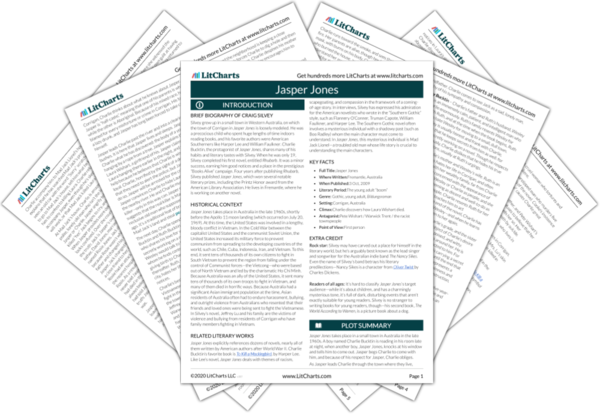thinks that it’s been difficult not telling about . He wonders if Laura’s dead body will rise to the surface of the lake soon, and if he and will be arrested for hiding her there. He’s reluctant to go to the fireworks display that night for fear of running into —he’ll be too tempted to break his promise to Jasper and tell her about Laura. Charlie thinks about leaving town with Jasper, avoiding any responsibility for Laura’s disappearance. He could go to a new school, or travel with Jasper, as if they were characters from
On the Road. Charlie fantasizes about exploring Australia with Jasper and writing letters to Eliza—and one day, he’ll be a great author in New York. When that happens, he’ll reunite with Eliza and tell her about Laura.
